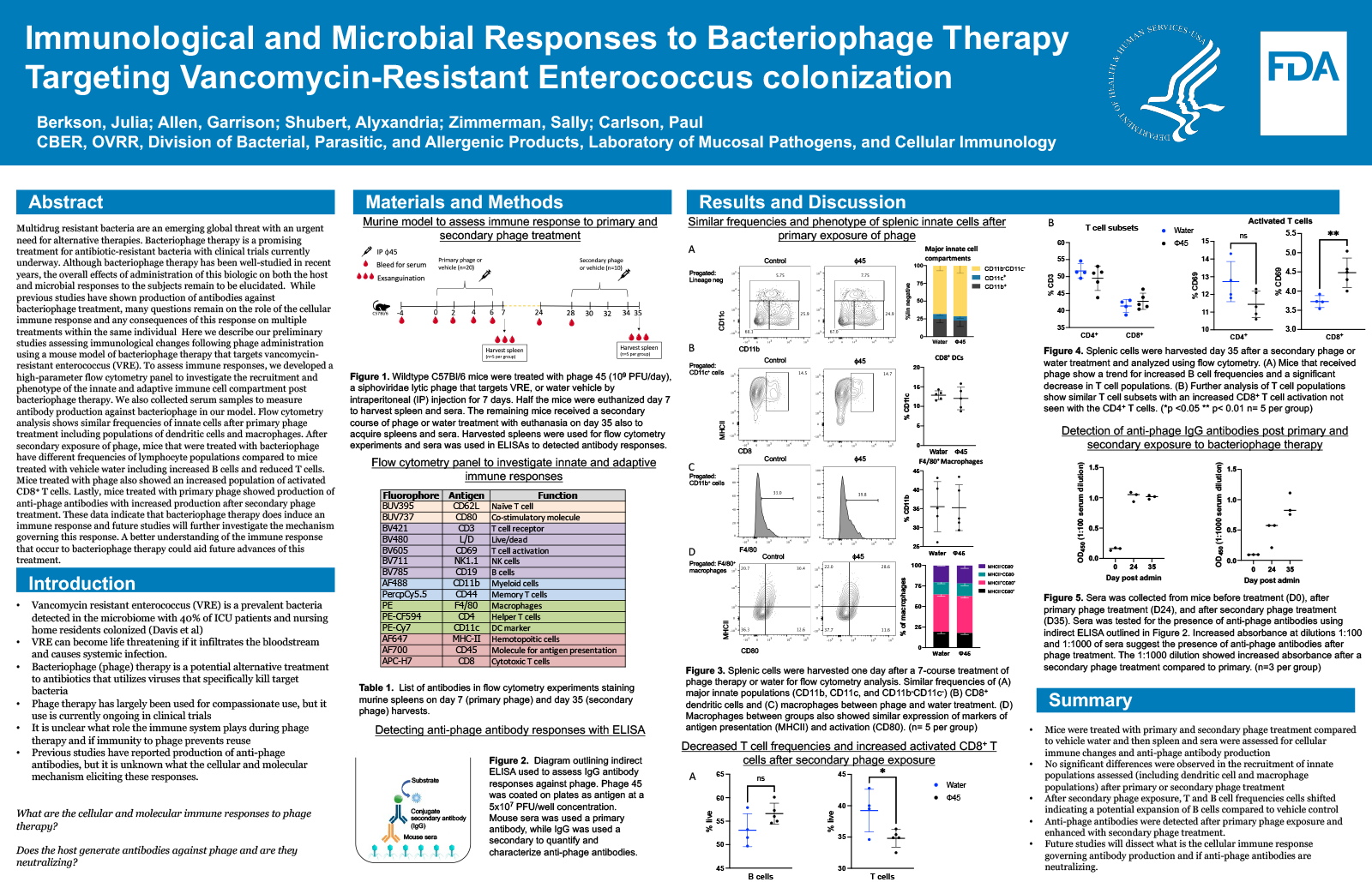2021 FDA Science Forum
Immunological and Microbial Responses to Bacteriophage Therapy Targeting Vancomycin-Resistant Enterococcus Colonization
- Authors:
- Center:
-
Contributing OfficeCenter for Biologics Evaluation and Research
Abstract
Multidrug resistant bacteria are an emerging global threat with an urgent need for alternative therapies. Bacteriophage therapy is a promising treatment for antibiotic-resistant bacteria with clinical trials currently underway. Although bacteriophage therapy has been well-studied in recent years, the overall effects of administration of this biologic on both the host and microbial responses to the subjects remain to be elucidated. While previous studies have shown production of antibodies against bacteriophage treatment, many questions remain on the role of the cellular immune response and any consequences of this response on multiple treatments within the same individual. Similarly, there is an assumption within the field that bacteriophage treatment will have a minimal effect on the host microbiome, especially when compared to antibiotic therapy, however few studies have thoroughly assessed changes in microbial composition in a host following treatment. Here we describe our preliminary studies assessing immunological and microbial changes following phage administration using a mouse model of phage therapy against vancomycin-resistant enterococcus (VRE) gut colonization. To assess immune responses, we developed a high-parameter flow cytometry panel to investigate the recruitment and phenotype of the innate and adaptive immune cell compartment post bacteriophage therapy. We also collected serum samples to measure antibody production as well as neutralizing capabilities against bacteriophage in our model. Additionally, since our preliminary work indicates that phage therapy may be influenced by the composition of the host microbiota, we collected stool throughout our VRE decolonization model. These samples were assessed using 16S rRNA sequencing to characterize any changes that occur in the intestinal microbiome during bacteriophage treatment. Significant shifts in abundance of various taxa were observed throughout the model during decolonization and phage treatment. A better understanding of both the immune responses and microbial changes that occur in response to bacteriophage therapy could aid future advances of this treatment.

Download the Poster (PDF; 0.83 MB)
